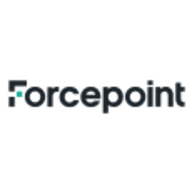


Forcepoint Next Generation Firewall and Zscaler Cloud Firewall are both highly regarded security solutions. Based on user reviews, Zscaler has the upper hand due to its superior features and long-term value.
Features: Users highlight Forcepoint's robust network segmentation, comprehensive threat intelligence, and straightforward deployment. Zscaler is noted for its advanced cloud security, ease of integration with various cloud services, and superior feature set.
Room for Improvement: Forcepoint needs enhancements in scalability, better integration with third-party tools, and improved compatibility. Zscaler requires better documentation, more user training resources, and more consistent customer support.
Ease of Deployment and Customer Service: Forcepoint's deployment is straightforward, with occasional challenges, and highly rated customer service. Zscaler's cloud-native deployment is quicker, giving it an edge, but customer service receives mixed feedback.
Pricing and ROI: Forcepoint is cost-effective with good ROI, though the initial setup cost may be high. Zscaler is more expensive but perceived as delivering good value and ROI through its comprehensive features and cloud benefits.
Clients are now comfortable and not wasting productive hours on IT support.
The automation part is giving us a cost benefit and speed; we can react faster.
It's a very useful tool to mitigate and protect your enterprise.
Cybersecurity ROI could be $1 or $100 million, depending on the risk of data behind it.
They offer very accurate solutions.
The quick resolution of issues with Fortinet FortiGate is due to the support of the company and the fact that the equipment is easy to work with.
I would rate the technical support for Fortinet FortiGate a ten out of ten.
Unlike Fortinet where you can escalate an issue and quickly get responses from the development team, Forcepoint's process seems slow and challenging.
Technical support is sometimes slow to respond, and it takes longer to resolve issues.
On a scale of 1 to 10 for customer service for Forcepoint Next Generation Firewall, I would rate it at least 9, 9.5.
The response and support are sometimes inadequate, which detracts from the overall experience of an otherwise impressive solution.
The technical support from Zscaler was excellent.
They scale up really well from smaller models like the FortiGate 40 and 50 to bigger sites with the FortiGate 100 for more throughput - up to enterprise datacenters.
The variation comes in terms of the interfaces and throughputs, but from a security perspective, you get the same benefit, irrespective of whether you have an entry-level unit or an enterprise.
We determine sizing based on multiple factors: number of users, available links, traffic types, server count, services in use, and whether services will be published.
There are restrictions in the firewall manager and limitations when deploying for cloud environments.
In this case, Twingate will be very easy compared to Zscaler.
We're experiencing 99.999% availability consistently.
I would rate the stability of Fortinet FortiGate a ten out of ten.
Currently, we are experiencing a general outage of one of the main internet service providers of the Dominican Republic, and we have not been impacted in our operations because with SD-WAN, we have another internet service provider and we are working with the second WAN connection without any disruption.
There were some stability issues due to occasional latency and lags, particularly with the GUI and report generation.
Investing in a solution that can accommodate such growth would be more cost-effective than repeatedly purchasing new hardware.
While Fortinet claims to offer a comprehensive network solution, it falls short in addressing computer application issues, particularly server security.
When considering Sophos XG, which we also use, the logging and reporting functionality is notably more efficient.
Fast response and efficient handling of issues, similar to how Fortinet responds, would be great.
AI improvements could be beneficial, as having AI capabilities has become an important checkmark feature.
I recommend that additional features be included in a single license to avoid the need for extra licensing costs.
For now, there is no dashboard or network management system available for Twingate.
The reverse proxy feature for Data Loss Prevention (DLP) is missing.
I believe the integration of AI could improve the dashboard by making it more agile and effective in monitoring and predicting threats.
Last year, I renewed the support for three years, which can sometimes be expensive but depends on the security benefits and how it helps us.
It offers cost savings as it is generally cheaper than the competition.
It is about 20% cheaper.
The costs can be high since additional features require separate licenses.
In terms of pricing, I would place Forcepoint in the middle when compared to other firewalls like Fortinet and Palo Alto.
Zscaler Cloud Firewall is quite expensive compared to competitors.
In terms of security, we have not experienced any security flaws or loopholes, and it has proven to be quite stable.
FortiGate has helped reduce the risk of cyberattacks that might disrupt our client's production.
These features help reduce our downtime, manage the ISPs, and deploy SLAs for all the website traffic.
With Forcepoint, this process is simplified compared to others like Fortinet.
The most valuable features of Forcepoint Next Generation Firewall are the advanced threat protection, including features like IPS and DDoS prevention, which help avoid internal DDoS attacks.
From a configuration standpoint, it has been easy to manage.
It is really customized, a security policy that can be applied to the users so they can access only the resources I enable them.
Advanced threat protection features in Zscaler Cloud Firewall are practically the key component that every customer wants.
The biggest advantage of Zscaler Cloud Firewall is its consolidation of products.
| Product | Market Share (%) |
|---|---|
| Fortinet FortiGate | 20.4% |
| Zscaler Cloud Firewall | 0.5% |
| Forcepoint Next Generation Firewall | 0.5% |
| Other | 78.6% |



| Company Size | Count |
|---|---|
| Small Business | 350 |
| Midsize Enterprise | 130 |
| Large Enterprise | 187 |
| Company Size | Count |
|---|---|
| Small Business | 26 |
| Midsize Enterprise | 8 |
| Large Enterprise | 11 |
| Company Size | Count |
|---|---|
| Small Business | 4 |
| Midsize Enterprise | 2 |
| Large Enterprise | 13 |
Fortinet FortiGate excels in providing integrated VPN, firewalling, and Unified Threat Management (UTM) with centralized management and high availability. It supports remote access and comprehensive threat protection, making it a preferred choice for securing networks.
Fortinet FortiGate offers a robust security platform with features such as strong intrusion prevention, application control, and web filtering. Its integration with Active Directory and SD-WAN functionality provides scalable solutions for large networks. Users appreciate its ease of use through centralized management interfaces, ensuring robust security with flexible configurations. However, FortiGate could enhance its graphical interface and technical support responsiveness, address firmware bugs and costly licensing, improve logging, integrate better with third-party tools, and strengthen scalability and memory for log storage. Complexity in configuration and the need for intuitive features are noted challenges, and there's a demand for advanced security, zero-trust capabilities, and AI integration.
What are the key features of Fortinet FortiGate?Fortinet FortiGate is widely implemented across industries like education, finance, and government. Companies use it for firewall protection, VPN, and SD-WAN capabilities, ensuring secure perimeter and data center security. It facilitates remote access management and traffic routing optimization, offering reliable security and connectivity solutions.
Forcepoint Next Generation Firewall is a versatile and comprehensive solution for perimeter security, offering features such as SD-WAN, IPS, VPN, and cloud or on-premises subscription keys. It is preferred by many clients over Cisco and is used for obligation redundancy, VPN access, and as the main point of security in infrastructure.
The product is praised for its simplicity, flexibility, complete feature set, scalability, and central management capabilities. Other valuable features include IPS, firewall, sandbox, application control, filtering, security management center, connectivity, and integration capabilities.
Zscaler enables the world’s leading organizations to securely transform their networks and applications for a mobile and cloud first world. Its flagship services, Zscaler Internet Access and Zscaler Private Access, create fast, secure connections between users and applications, regardless of device, location, or network. Zscaler services are 100% cloud-delivered and offer the simplicity, enhanced security, and improved user experience that traditional appliances or hybrid solutions are unable to match. Used in more than 185 countries, Zscaler operates the world’s largest cloud security platform, protecting thousands of enterprises and government agencies from cyberattacks and data loss.
Check more details: https://www.zscaler.com/produc...
We monitor all Firewalls reviews to prevent fraudulent reviews and keep review quality high. We do not post reviews by company employees or direct competitors. We validate each review for authenticity via cross-reference with LinkedIn, and personal follow-up with the reviewer when necessary.